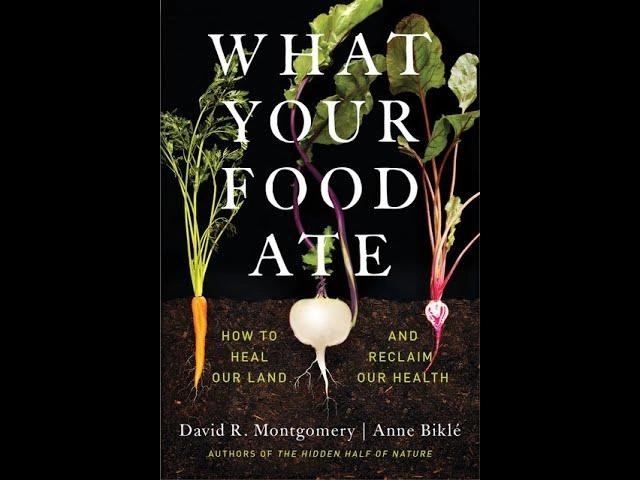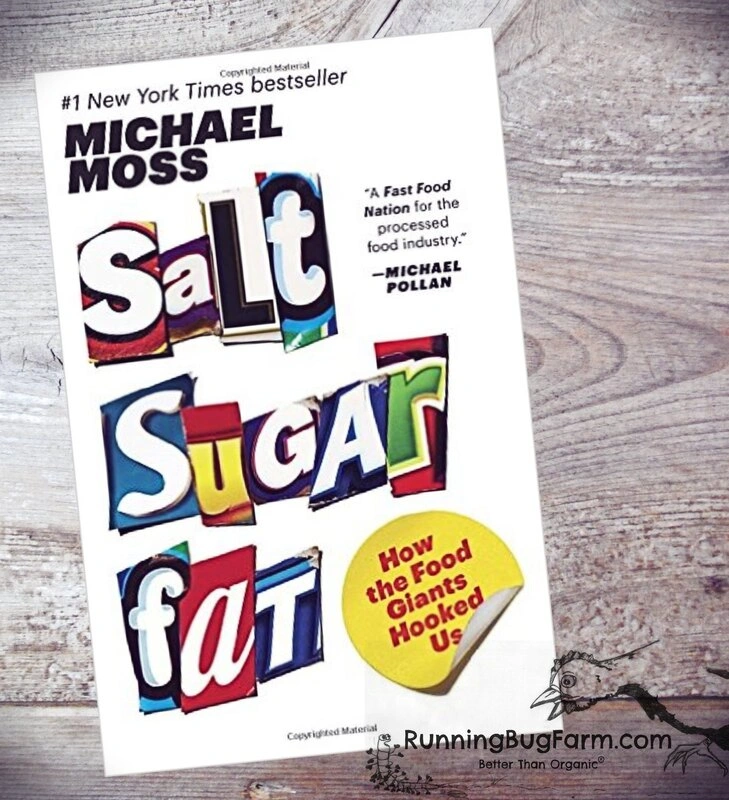What I’ve Been Reading Lately
I’ve always been a voracious reader, but this past year has been something special. Between working on my book, questioning everything about modern life, and trying to understand how we got to this weird place in human history, I’ve been consuming books like they’re going out of style.
People often ask me for book recommendations, and honestly, I get more excited about sharing a good book than I do about sharing a good recipe. Books have the power to completely shift how you see the world, and some of the ones I’ve read lately have done exactly that.
So here’s what’s been keeping me up way too late, making me think harder than I probably should while doing barn chores, and generally rewiring my brain in the best possible way.
My Favorite Books from the Past Few Months
The Omnivore’s Dilemma by Michael Pollan
If you haven’t read this one yet, stop what you’re doing and go get it. Seriously. This book will change how you think about every single thing you put in your mouth.
Pollan follows four different meals from source to table—industrial agriculture, industrial organic, small farm, and hunter-gatherer—and the journey is absolutely fascinating and horrifying in equal measure. The industrial agriculture section made me want to never eat again, while the small farm section made me want to hug every farmer I meet.
What I love about this book is that Pollan doesn’t just tell you what to think—he shows you the systems and lets you draw your own conclusions. By the time you finish reading about how industrial chickens are raised versus pastured chickens, you don’t need anyone to tell you which one makes more sense.
This book reinforced everything I believe about knowing where your food comes from and supporting systems that work with nature instead of against it.
What Your Food Ate by David R. Montgomery and Ann Bikle

This is basically the sequel to The Omnivore’s Dilemma that you didn’t know you needed. Montgomery and Bikle dive deep into the connection between soil health, plant nutrition, and human health, and the implications are staggering.
The basic premise is simple: healthy soil grows more nutritious plants, which create healthier animals and humans. Depleted soil grows less nutritious plants, which create less healthy animals and humans. But the details of how this works are absolutely mind-blowing.
They present compelling evidence that many of our modern health problems are directly linked to the nutritional decline of our food, which is directly linked to the decline of our soil health. It’s not just that processed foods are bad for us—it’s that even whole foods are less nutritious than they used to be because the soil they’re grown in has been depleted.
This book made me even more committed to building soil health on our homestead and supporting farmers who prioritize regenerative practices.
The Almanack of Naval Ravikant
This isn’t a traditional book—it’s a compilation of Naval’s thoughts on wealth and happiness collected from various interviews, tweets, and podcasts. It’s the kind of book you can read in an afternoon but will think about for months.
Naval has this way of cutting through all the noise and getting to the core truths about how to build wealth (both financial and personal) and find happiness. Some of his ideas challenged assumptions I didn’t even know I had.
His thoughts on specific knowledge, building assets instead of trading time for money, and the importance of reading are particularly relevant for anyone trying to build a more intentional life.
One quote that’s been rattling around my brain: “The modern devil is cheap dopamine.” That pretty much sums up why I’m so committed to old-fashioned pursuits that require patience and effort.
Uprooted by Grace Olmstead
This book broke my heart and gave me hope at the same time. Olmstead explores what happens to rural communities when young people leave for opportunities in cities, and how some communities are finding ways to attract people back.
She tells the story of her own hometown in Idaho, weaving together personal narrative with larger economic and social trends. The writing is beautiful, and the subject matter is deeply relevant to anyone who cares about rural America.
What struck me most was her exploration of how economic incentives often work against community building and rootedness. The forces that make it profitable for young people to leave small towns are the same forces that make it difficult for rural communities to thrive.
This book reinforced my belief that choosing to live in a small community and invest in local relationships is both personally rewarding and socially important.
Salt Sugar Fat by Michael Moss

Fair warning: this book might make you never want to eat processed food again. Moss investigates how the processed food industry deliberately engineers products to be as addictive as possible, and the tactics they use are straight out of the tobacco industry playbook.
The section on how they determine the “bliss point” for sugar, salt, and fat combinations is fascinating and terrifying. These companies employ teams of scientists whose job is literally to make food impossible to resist, regardless of the health consequences.
Reading this book while working on my own book about old-fashioned living felt like perfect timing. It’s a comprehensive explanation of why cooking from scratch and avoiding processed foods isn’t just a lifestyle preference—it’s a form of resistance against an industry that profits from making us sick.
The Indifferent Stars Above: The Harrowing Saga of the Donner Party by Daniel James Brown
This book has absolutely nothing to do with homesteading, but it’s one of the most gripping reads I’ve encountered in years. Brown tells the story of the Donner Party—the group of pioneers who got trapped in the Sierra Nevada mountains during the winter of 1846-47.
What makes this book special is Brown’s ability to combine meticulous historical research with storytelling that reads like a novel. You feel like you’re right there with these families as they make increasingly desperate decisions.
It’s also a sobering reminder of how soft modern life has made us. These people endured hardships that would break most of us, and they did it without any of the tools and knowledge we take for granted.
Reading this made me grateful for our modern conveniences while also making me want to develop more practical skills and mental toughness.
The Worst Hard Time: The Untold Story of Those Who Survived the Great American Dust Bowl by Timothy Egan
Another history book that’s incredibly relevant to understanding how we got where we are today. Egan tells the story of the Dust Bowl through the experiences of the people who lived through it, and it’s both heart-breaking and inspiring.
The Dust Bowl wasn’t just a natural disaster—it was largely caused by farming practices that ignored local conditions and prioritized short-term profits over long-term sustainability. Sound familiar?
What’s most remarkable is the resilience of the people who stayed and rebuilt their communities using more sustainable practices. They learned from the disaster and created farming systems that worked with the land instead of against it.
This book reinforced my conviction that understanding our history is crucial for making better decisions about our future, both personally and collectively.
Final Thoughts & Book Suggestions
What all of these books have in common is that they’ve made me think differently about something important. They’ve challenged assumptions, provided new frameworks for understanding complex issues, or simply told compelling stories that stuck with me long after I finished reading.
If you’re looking for your next good read, I’d recommend starting with The Omnivore’s Dilemma if you haven’t read it yet. It’s the kind of book that changes how you see the world and makes you want to immediately change how you live.
I’m always looking for new book recommendations, especially ones that deal with intentional living, traditional skills, rural life, or just great storytelling about people doing interesting things. If you’ve read something lately that made you think differently about life, I’d love to hear about it.
Books have been my teachers, my entertainment, and my companions during long days of writing and thinking. In a world full of digital distractions and shallow content, sitting down with a well-written book feels like a revolutionary act.
So stop gooning, put down your phone, and pick up a book. Your brain will thank you, and you might just discover something that changes how you see the world.

Leave a Reply